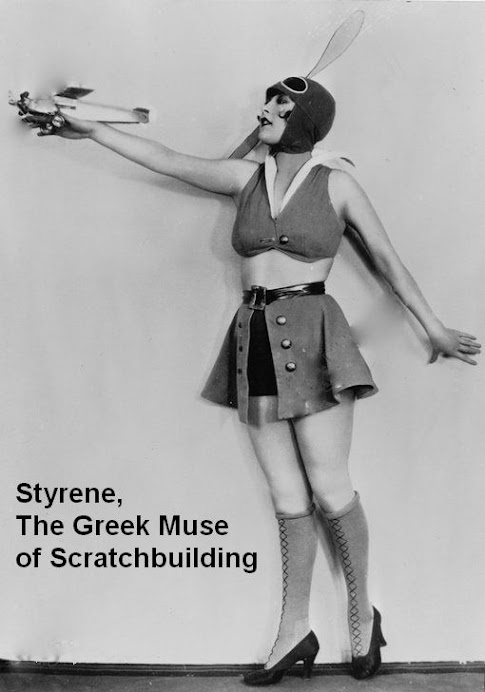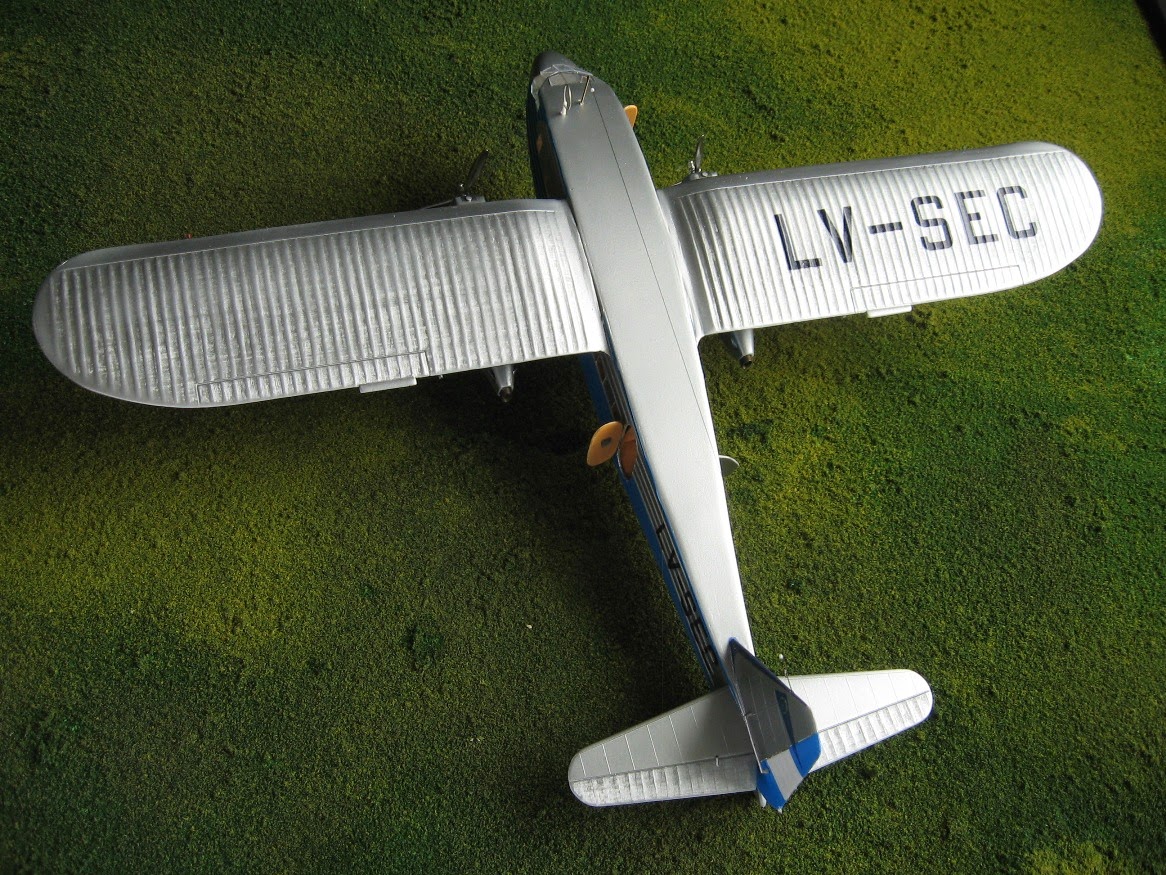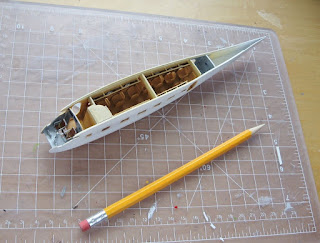Here is the completed Potez 62.1 in Argentinean livery, with full interior (unfortunately, if you need to go the restroom, you will need to click on the building article link, though).
A very long-haul project that spanned several months (as
many of you know my builds usually span only days).
Again my thanks to Sönke Schulz (the original Heller kit's
donor!), Alain Bourret, Christos Psarras, Matias Hagen, Martin Blanco from
Uruguay*, Armando Gil, the Pavlovcic article in LV -that although not totally accurate helped spur my interest-, and the others that helped me with this project.
*Y, amigos de Uruguay, para cuándo un
CX-ADH?
The step-by-step building article is here:
Just to be clear regarding this conversion:
1) You can not use the Heller's kit fuselage unless you
completely modify it and make it wider. Better make a new one.
2) You can not use the kit's engine gondolas and props
without modifications, not a single one Potez 62.1 had those seen in the kit.
3) Get good references, the Dumollard book to start with.
4) Be prepared to do some serious work.
5) Whenever possible, do not only look at drawings, but also
at photos of the machine you wish to replicate. They tend to differ...quite a
bit.
6) Cross-check your references, as you may see in the
building article write-up some can be misleading.
7) The lighter color of the airliners is NOT white, neither
pure aluminum, but a grayish version of it. Many photos show how dark and
somewhat dull this tome could be under certain light conditions, and on the
other hand under different lighting it could look white. Especially useful is the photo published in the
Pavlovcic article mentioned in the building posting, where the white of the
Argentinean flag on the rudder clearly contrasts with the fuselage upper color.
It is truly a touch of irony that LV-"SEC"
(dry in French) ended up soaked as shown on that photo sticking ignominiously
its tail out of the water in Brazil.
Or may be the plane just wanted to have a splash in the waves of Rio.
8) In order to achieve a good result it is indispensable
that during the construction of this model you listen to György Ligeti -or at
the very least Eric Satie- and read "Monty Python's Big Red Book".



















































Dear Claudio,
ReplyDeleteThis is, possibly, your best model yet. Persistance and confidence were the obvious drivers. Kudos to you for such a good job so well done.
a wee quibble though; a little tuch-up with a 00000 brush of the masked curve of the blue on the right hand nose would not be amiss,
Can't wait to see the finished Stinkson A.
Cheers, jim
Thanks, Jim, generous words.
DeleteBrilliant! I love it. A masterclass by a master.Andrew
ReplyDeleteThanks, Andrew!
Deleteall the very best for you.
Extraordinario trabajo, me encanta, felicitaciones. Armando Gil.
ReplyDeleteGracias caballero Armando!
DeleteExcelent job, congratulations. Armando Gil.
ReplyDelete